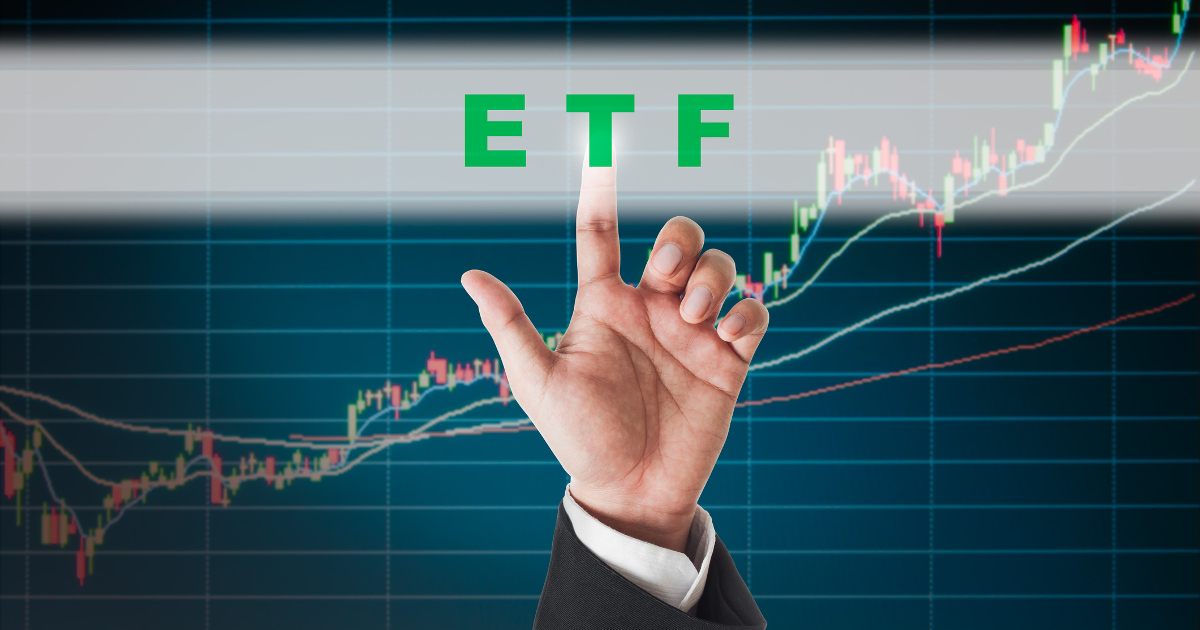
As Treasury yields surge, the possibility of rate cuts takes a back seat, with market pundits speculating they might not materialize until the year’s end. This pushback in Federal Reserve interest-rate cut expectations stems from robust U.S. business activity and a tight labor market, sparking a shift in trader sentiment.
To that end, let’s look at the best-performing high-yield bond ETFs SPDR Bloomberg High Yield Bond ETF (JNK), iShares Broad USD High Yield Corporate Bond ETF (USHY), and iShares iBoxx $ High Yield Corporate Bond ETF (HYG) with a greater potential for returns and enhanced diversification.
In April, inflation eased slightly, bringing some relief to consumers, but it remained above levels that would prompt an immediate interest rate cut. The Consumer Price Index (CPI), a key measure of inflation, increased by 0.3%, just below the expected 0.4% rise. However, on a year-over-year basis, the CPI grew by 3.4% in April, meeting expectations.
Strong U.S. business activity and a tight labor market prompted traders to delay Federal Reserve interest-rate cuts until year-end, causing Treasury yields to surge. The two-year yield, sensitive to Fed policy, reached its highest level since May 1, rising over five basis points to 4.933%.
Similarly, the yield on the 10-year Treasury increased by 4.1 basis points (ending at 4.474%), while the yield on the 30-year Treasury bond rose 2.8 basis points to 4.579%.
Meanwhile, policymakers stressed the need to wait for several additional months to ensure that inflation is firmly on track towards its 2% target before contemplating any interest rate cuts.
Fed Governor Christopher Waller stated, “In the absence of a significant weakening in the labor market, I need to see several more months of good inflation data before I would be comfortable supporting an easing in the stance of monetary policy.”
On the other hand, investors are gearing up for a significant increase in U.S. government debt issuance, which could overshadow a potential bond rally due to ongoing large fiscal deficits in the run-up to this year’s presidential election. While the bond markets have largely been influenced by expectations regarding Federal Reserve interest rate cuts, fiscal issues are likely to become more significant as the November 5 election draws near.
Analysts and investors observe that neither President Joe Biden nor Republican challenger Donald Trump seems focused on reducing deficit spending, despite their teams disputing this. As a result, some investors are shifting funds to avoid potential losses if Treasury yields rise due to supply and demand imbalances.
Against this backdrop, investors could consider investing in high-yield bond ETFs. This particular ETF group best suits those interested in a higher current income and having a relatively high tolerance for risk.
With that in mind, let’s look at the fundamentals of the top three High Yield Bond ETFs, beginning with number 3.
ETF #3: SPDR Bloomberg High Yield Bond ETF (JNK)
JNK seeks to offer a diversified exposure to U.S. dollar-denominated high-yield corporate bonds with above-average liquidity. The fund tracks an index with middle-rated bonds with at least one year to maturity and $600 million or more in outstanding face value. For investors willing to accept the associated risks, it can offer double-digit yields.
JNK tracks the Bloomberg High Yield Very Liquid Index. As of May 23, 2024, the fund had assets under management (AUM) of $8.34 billion and an NAV of $94.14. JNK has an expense ratio of 0.40%, lower than the category average of 0.43%.
The fund’s top holdings include State Street Institutional Liquid Reserves Fund (SSIXX) with a 0.66% weighting, Mozart Debt Merger Sub, Inc. 3.875% 01-APR-2029 at 0.46%, followed by TIBCO Software Inc. 6.5% 31-MAR-2029 with a 0.45% weighting. It currently has a total of 1185 holdings.
The fund pays an annual dividend of $6.21, translating to a 6.61% yield at the prevailing price level. Its dividend payouts have grown at a 6.1% CAGR over the past three years. The fund’s four-year average yield is 5.53%.
JNK has gained 3.3% over the past year to close the last trading session at $93.95. Its fund inflows came in at $820.07 million over the past month and $383.41 million over the past six months. Also, the ETF has a beta of 0.94.
JNK’s POWR Ratings reflect its promising prospects. The ETF has an overall rating of A, which translates to a Strong Buy in our proprietary rating system. The POWR Ratings are calculated by considering 118 different factors, with each factor weighted to an optimal degree.
It also has an A grade for Trade and Buy & Hold. Of the 59 ETFs in the B-rated High Yield Bond ETFs group, JNK is ranked #3. To access all of JNK’s POWR Ratings, click here.
ETF #2: iShares Broad USD High Yield Corporate Bond ETF (USHY)
USHY provides an expansive exposure to the U.S. dollar-denominated corporate high-yield bond market by including issuers from the FX-G10 countries. The fund invests in bonds with a minimum outstanding face value of $250 million, a minimum maturity date of 18 months, and at least one year remaining until maturity. It tracks the ICE BofA U.S. High Yield Constrained Index.
With $12.30 billion in AUM, its top holdings are U.S. Dollar with a 0.38% weighting in the fund, Mozart Debt Merger Sub, Inc. 3.875% 01-APR-2029 at 0.33% weight, followed by Cloud Software Group, Inc. 9.0% 30-SEP-2029 and TIBCO Software Inc. 6.5% 31-MAR-2029 at 0.30% each. The ETF has a total of 1,877 holdings.
The ETF's expense ratio is 0.08%, lower than the category average of 0.43%. USHY fund inflows were $2.86 billion over the past year and $1.68 billion over the past six months.
USHY pays an annual dividend of $2.45, which translates to a 6.78% yield at the current price level. The fund’s dividend payouts have grown at a 4.4% CAGR over the past three years. Its four-year average yield is 5.88%.
Over the past year, USHY has gained 3.6% to close the last trading session at $36.15. It has a five-year beta of 0.89. The fund’s NAV was $36.18 as of May 23, 2024.
USHY’s solid fundamentals are reflected in its POWR Ratings. The fund has an overall rating of A, which translates to a Strong Buy in our proprietary rating system.
The fund has an A grade for Trade and Buy & Hold. USHY is ranked #2 among 59 ETFs in the same B-rated group. Click here to access all the USHY ratings.
ETF #1: iShares iBoxx $ High Yield Corporate Bond ETF (HYG)
BlackRock Fund Advisors manages HYG. The fund invests in fixed-income markets of the globally developed region. It invests in U.S. dollar-denominated high-yield corporate bonds with a maturity of at least one year and less than 15 years. The fund seeks to track the performance of the Markit iBoxx USD Liquid High Yield Index.
As of May 23, HYG had $17.19 billion in assets under management and an NAV of $76.85. Its expense ratio of 0.49% compares to the category average of 0.43%. Also, it has a beta of 0.94.
The fund’s top holdings include U.S. Dollar with a 0.49% weight, DISH Network Corporation 11.75% 15-NOV-2027 with a 0.41% weight, Mozart Debt Merger Sub, Inc. 3.875% 01-APR-2029 with a 0.39% weight, and TIBCO Software Inc. 6.5% 31-MAR-2029 with a 0.38% weight. It has a total of 1,240 holdings.
HYG’s trailing-12-month dividend of $4.58 yields 5.96% on the current price level, while its four-year average dividend yield is 5.06%. Over the past month, the fund’s net inflow came in at $2.49 billion. It has gained 3.6% over the past year to close its last trading session at $76.82.
HYG’s promising outlook is reflected in its POWR Ratings. The ETF has an overall A rating, equating to a Strong Buy in our proprietary rating system.
It has an A grade for Trade and Buy & Hold. It is ranked first out of 59 ETFs in the same High Yield Bond ETFs group. To see the POWR Ratings of HYG for Peer, click here.
What To Do Next?
43 year investment veteran, Steve Reitmeister, has just released his 2024 market outlook along with trading plan and top 11 picks for the year ahead.
HYG shares were trading at $77.04 per share on Friday afternoon, up $0.22 (+0.29%). Year-to-date, HYG has gained 1.66%, versus a 11.77% rise in the benchmark S&P 500 index during the same period.
About the Author: Shweta Kumari

Shweta's profound interest in financial research and quantitative analysis led her to pursue a career as an investment analyst. She uses her knowledge to help retail investors make educated investment decisions.
3 High Yield Bond ETFs Primed for May Surges StockNews.com






